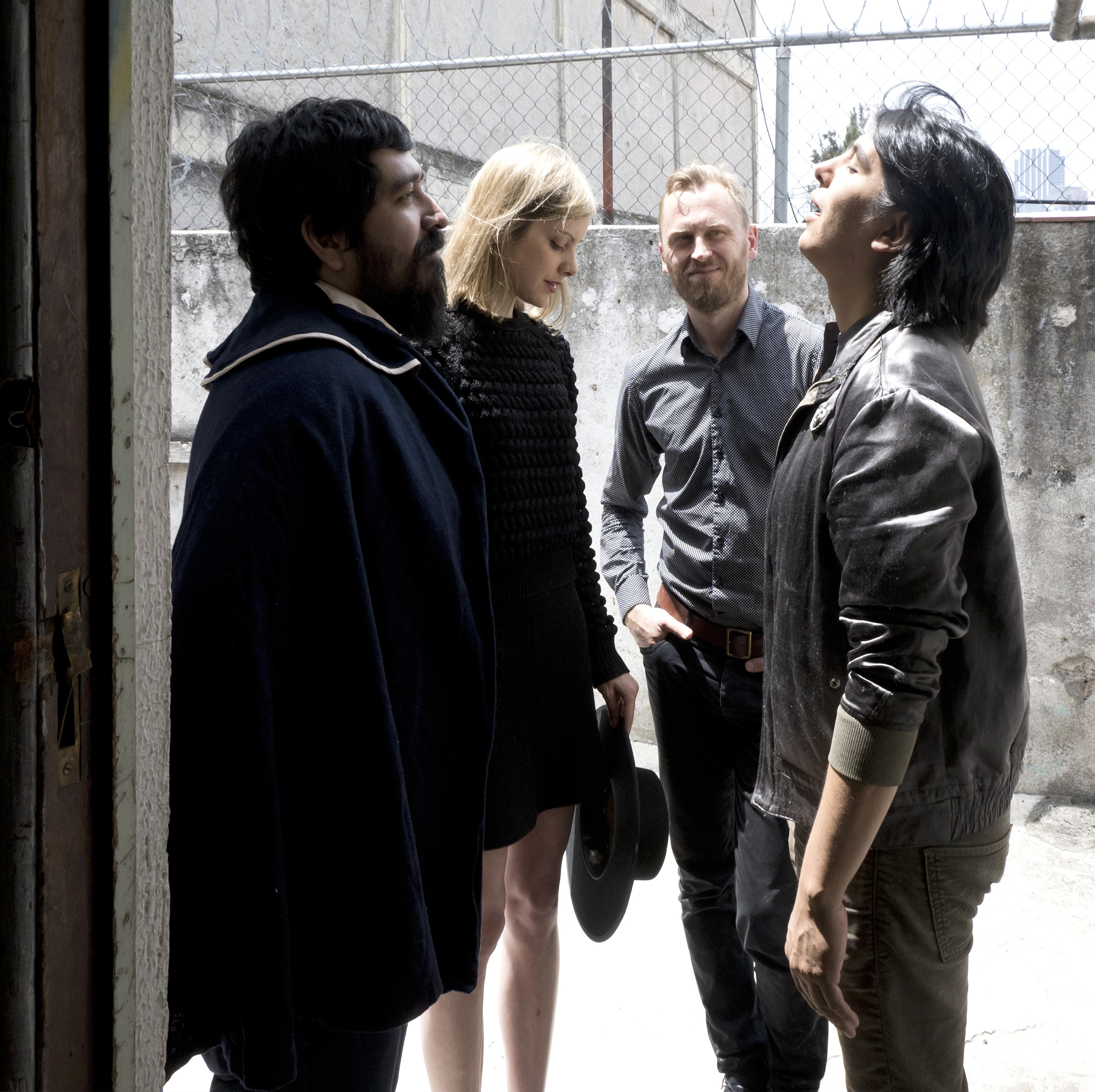“Yeah,” Anika sighs when I ask her about the song title, as if her feelings on the matter are too vast to articulate. “That was the thing. It was really a strange, strange coincidence when that happened the other day; when that happened with the name – we’ve been talking a lot about it as a band.”
The song was actually named after Virginia Woolf’s novel, Orlando: A Biography, and the repeated refrain, ‘Life, it sings / Or croons rather / Like a kettle on a hob / Life, life what art thou?’, is a direct quotation from that book. In an email I receive a few days after our interview, Anika tells me that “the main character [of Woolf’s novel] has become a symbol to all those who believe they can free themselves from the restrictions imposed on our bodies, on our freedoms; the song is a celebration of life’s simple pleasures; of union in our differences.” In this way it seems an ideal record to release right now, and the ties to the terrible shootings in Florida only serve to underpin the message — although Anika is, understandably, nervous about appearing to cash-in on a tragedy.
“It’s a very difficult issue and we’re still figuring out what to do, because obviously we want to be respectful to the people [involved in the massacre],” she says. “And it’s difficult. Do we change the name of the song? Or do we release it and then speak a lot about the events? Which I think is an important thing to do. But it’s tricky.’ And it is, indeed, a delicate balance to strike; on the one hand being given a platform to speak out on world events, and on the other, taking care not to fuel the fire of hatred that’s behind such violence. “As musicians, as people in the public, you definitely have a responsibility to address issues and to really put your stance across,” she says. “And Martin is gay, so for him he really wanted to speak out because of that. But it’s very difficult, you know, I do have to admit.”
The grimly serendipitous timing of ‘Orlando’’s release is characteristic of a project that’s been produced through struggle and accident at almost every stage. By 2014, Anika explains, she felt disconnected from music and uninspired. She’d made the move to Berlin after releasing her first album in 2010 (the Nico-ish ‘Anika’, recorded with Bristol trio Beak> was a treasure for dark dub fans who found it), in the hope that cheap rent and a vibrant artistic community would provide an ideal environment for creativity. She soon found that that wasn’t the case. “It was great for a bit, but then I realised I lost my struggle. There was nothing to battle, it’s just too easy here.”
So she travelled, and eventually found herself planning a trip to Mexico, hoping to make a documentary. “But I needed the flight to be covered, so I got a booking at a festival there and then I was like, ‘oh shit, I don’t have a band!’ So I put the band together remotely – my friend helped me. And we started rehearsing; we had a week before the show and I’d sent them all of the songs and we’d been trying stuff online, and I went there and we started to play and I was like: ‘WOW’. This was the first time I had that passion for music again, you know? It was a tough time, but it was the first time I was making music out of necessity again. And it was sort of enjoyable. I mean, it was also very challenging, but that’s what was nice. We ended up, kind of by accident, writing an album. And we became very good friends and then I went back and re-recorded it and now we have a band, so that’s it. That’s the story.”
But how do you write an album by accident?
“We were rehearsing for the shows and we were waiting for one of the other members to come, and he was always late, which in Mexican time means like eight hours late or something. We just ended up just playing. They started playing and I started writing lyrics and it was like this psychological unwinding; words from the unconscious just coming out. I was dealing with a lot of my problems at the time and they came out in the songs — so, you know, sort of by accident.”

